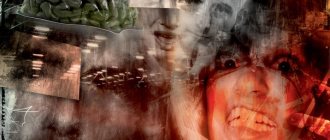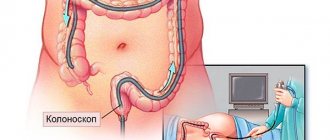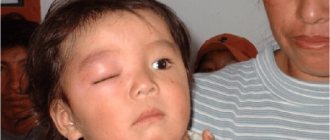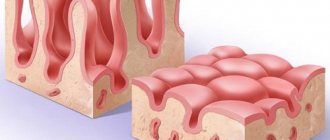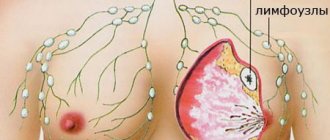Schizophrenia is a severe mental illness characterized by delusions and hallucinations.
However, this is a general name that combines several subtypes of the disease. One of them is hebephrenic schizophrenia. Where does this name come from? The ancient Greek goddess of youth Hebe is involved in it, and it is in honor of her, the personification of eternal youth, that this type of mental disorder is named. This is due to the fact that patients behave foolishly, childishly. The answers to the following questions will certainly interest the reader even if he has never heard of it:
- How is it different from other types of schizophrenia?
- How to determine the presence of this particular mental disorder?
- Is it really that dangerous and is a positive treatment outcome possible?
Service price
- HOSPITAL Day hospital5 000
- Day hospital with intensive care8,000
- 24-hour hospital (all inclusive, cost per day) 12,000
- 24-hour hospital (all inclusive, cost per day). Single occupancy24,000
- 24-hour hospital (all inclusive, cost per day). Single occupancy in a superior room 36,000
- Primary family counseling for relatives of patients undergoing inpatient treatment free of charge
- Group psychotherapy for relatives of patients undergoing inpatient treatment free of charge
- Group psychotherapy for 24-hour and day hospital patients free of charge
- Individual post for a hospital patient (if indicated)6,000
Hebephrenic schizophrenia
- a type of schizophrenia in which disturbances in the emotional and affective sphere predominate. Most often, it begins in adolescence or young adulthood (from 15 to 25 years) and has a difficult to treat course.
In the absence of adequate treatment, it leads to the so-called “schizophrenic defect” - complete collapse of the emotional-volitional sphere, isolation from the outside world, loss of personal characteristics and an irreversible disruption of thinking in the form of loss of the correct logical connection between judgments.
The code in the International Classification of Diseases, 10th revision (ICD-10) for hebephrenic schizophrenia is F 20.1.
This form is characterized by all the symptoms of schizophrenia, but the following come to the fore:
- absurd foolishness, reminiscent of childhood pranks;
- taking mannered and pretentious poses;
- answers in the form of ridiculous jokes or empty philosophizing, sometimes just an incoherent set of words pronounced as if it were one sentence (the so-called “broken thinking”);
- brutality and stubbornness; lack of purposefulness of behavior.
Despite such gross changes in behavior, the sick retain their intelligence, their entire stock of knowledge and skills, and complete orientation in the environment; They remember all their actions (even obviously ridiculous ones).
The causes of hebephrenic schizophrenia have not been fully established. According to the data available to scientists and doctors, a predisposition in the form of disruption of the formation of normal connections between nerve cells and a disorder in the exchange of neurotransmitters in the nervous system play a large role in the development of the disease.
Immunity disorders and hormonal changes in the body also contribute to the onset of the disease, because it is characteristic of hebephrenic schizophrenia that the disease occurs during the period of hormonal changes in adolescents.
Main symptoms
Hebephrenia is, first of all, disorganized behavior of the patient. By the way, this disease was previously called “disorganized schizophrenia.” It is characterized by the fact that a person experiences a loss of control over his own emotions, movements, and actions. Sometimes they simply do not make sense; they are performed spontaneously and out of place.
Hebephrenic schizophrenia, compared to other types of disease, is a rather rare phenomenon. In addition, the main signs of a mental disorder of this type - hallucinations and delusions - are very rarely present in the anamnesis, but they are replaced by other symptoms. Violations of the following qualities and skills are observed:
- thinking. Personality degradation occurs. An adult begins to behave like a capricious, disobedient child. Intellectual indicators decrease;
- self-organization. Inability to plan one's own behavior. Problems with personal hygiene;
- logics. Sometimes it is very difficult to explain for what purpose certain actions were carried out;
- determination. There is chaotic execution of any actions;
- emotional background. It noticeably becomes poorer and seems to smooth out. The patient looks distant and uninterested.
At first glance, a person with hebephrenic schizophrenia has symptoms that could be mistaken, for example, for depression. However, serenity and calm are abruptly replaced by attacks of sudden rage, aggression, crying or laughter. It looks extremely unnatural. The motivation for actions is lost, and since there is no goal, behavior is impulsive and completely unpredictable.
The person looks infantile, imitating the behavior of a child. He may constantly complain that he is being beaten, offended, humiliated, although in reality this does not happen. At the same time, the conversation often contains obscene language, gestures, obscene jokes, grimaces, mixed with incoherent speech or laughter.
The patient may indicate strange sensations in specific parts of the body. At the same time, he clearly explains the cause and place of these experiences, for example: a light bulb is burning in the stomach, the legs are separated from the body and placed next to them, needles are stuck into the eyes, etc. For a healthy person, such explanations do not carry any semantic load, while the doctor takes them into account when making a diagnosis.
Help for hebephrenic schizophrenia
First aid is an examination by a doctor and establishment of an accurate diagnosis. The specificity of hebephrenic schizophrenia, like other schizophrenic diseases, determines the lack of a critical attitude towards one’s condition.
Patients often do not understand that “I am sick.” In addition, sometimes even they resist attempts by relatives to bring them to a psychiatrist for examination.
If you are faced with an acute manifestation of the disease - the sick person is agitated, does not respond to you, screams, makes ridiculous faces and shows aggression - you should immediately call an ambulance or an intervention team.
As a rule, in case of severe behavioral disturbances and potential danger to oneself or others, hospitalization is used; if the patient refuses, involuntary hospitalization is used.
If there is no overexcitation, but the patient stubbornly refuses to be examined by a doctor, visit a psychiatrist yourself (without the patient). At the consultation, the doctor, in your words, will assess the situation and tell you what to do correctly to start treatment.
Clinical picture
Hebephrenic schizophrenia begins to show its signs somewhere towards the end of adolescence. That is, until approximately 16–17 years of age, the child grew and developed normally, but at some point a sharp change in his behavior occurs. During this period, the formation of the adolescent’s psyche is completed, but a failure occurs, and instead of the development and final formation of a mature personality, its degradation occurs.
The main manifestation of the disease is the presence of inappropriate, antisocial behavior of a teenager, directed at classmates, teachers and even strangers. At first, these signs are attributed to a difficult age and are not given due importance. And only after a certain time, you can understand that in reality there is something wrong with the child. The strangeness of his behavior becomes obvious and catches the eye not only of his parents, but also of those around him.
There may be isolation, a limited social circle, or complete voluntary isolation from society.
In general, in the presence of hebephrenic schizophrenia, the following clinical picture is observed:
- a person cannot explain the reason for his own inappropriate actions;
- addiction to bad habits (smoking, alcohol, theft, etc.);
- conflict, manifestation of aggression towards others;
- clarification of relations through assault;
- inability to concentrate on a specific subject for a long time;
- losing the thread of conversation, abruptly jumping from one topic to another.
Hebephrenic schizophrenia deprives a person of a sense of shame, restraint, and caution.
He may ask tactless questions without waiting for an answer. The use of obscene words occurs as if in jest, but when pulled back, the patient deliberately repeats them and begins to behave even more impudently and defiantly. A person with obvious signs of hebephrenia can come up with words himself, repeat them many times, laugh at what he thinks is his own wit. Often such actions are accompanied by unnatural, feigned facial expressions. There is a feeling that he does not know where to put his own hands.
A special theme is preoccupation with the opposite sex. All patients experience increased sexuality. However, when talking about intimate topics, they begin to giggle and grimace, like an eighth grader in an anatomy lesson. Behind all this ostentatious gaiety and foolishness lies indifference to the world around us and spiritual emptiness.
Treatment of hebephrenic schizophrenia
Treatment of newly diagnosed hebephrenic schizophrenia is most often carried out in two stages:
- Hospitalization in a 24-hour psychiatric hospital.
You can apply for hospitalization yourself at the hospital emergency room, or you can call doctors at home to transport the patient to the clinic. Inpatient treatment of hebephrenic schizophrenia is possible in state psychiatric hospitals or in private psychiatric hospitals licensed for inpatient psychiatric care. The average length of hospital stay for hebephrenic schizophrenia is about 30 days. During this period, examination and treatment are carried out, acute symptoms of the disease are relieved and criticism of the disease is formed, and preparation for rehabilitation is carried out. - Maintenance therapy and rehabilitation after discharge from the hospital at home. It takes many months, sometimes many years. It consists of constant monitoring by a psychiatrist, receiving supportive therapy, working with a psychologist and social workers, and restoring social relationships disrupted by the disease.
Treatment of hebephrenic schizophrenia is carried out based on the individual characteristics of the patient. Methods used:
- Pharmacotherapy. Strong antipsychotics (neuroleptics) are used, less often tranquilizers with a sedative effect.
- Shock therapy. Used when pharmacotherapy is ineffective. In our country this is electroconvulsive therapy and insulin therapy.
- Psychotherapy. Cognitive-behavioral psychotherapy. Psychological assistance to relatives. Skills training. Art therapy. Occupational therapy.
- Diet therapy.
- Physiotherapy.
Like other forms of schizophrenia, the hebephrenic form takes a chronic course and the goal of treatment and rehabilitation is the formation of remission - a state when the symptoms of the disease go away or are not very pronounced and it is possible to maintain a good quality of life for the patient and his loved ones.
Remission in the hebephrenic form of schizophrenia requires constant
observation by a psychiatrist.
Hebephrenic schizophrenia today
Hebephrenic schizophrenia has an early onset, usually in adolescence and early adolescence. In large cities, the incidence is higher than in rural areas. Differences in incidence between women and men are small. Today, in its pure form, this type of schizophrenia is rare.
People who subsequently develop schizophrenia often have poor socialization even before the onset of the disease. Hebephrenic schizophrenia often manifests itself in patients with advanced epilepsy.
In infancy and childhood, patients often have:
- low birth weight;
- reduced IQ;
- strong involuntary reactions to stress.
Children who subsequently develop hebephrenic schizophrenia are distinguished by:
- persistent antisocial traits or exemplary behavior;
- dependence on parents;
- unsociability;
- excessive sensitivity;
- lethargy and reluctance to engage in mental work.
Hebephrenic schizophrenia begins with behavioral problems: disobedience, antisocial behavior, even criminal behavior and early sexual contacts.
Flow
Depending on the course of the disease, hebephrenic schizophrenia can be of two types:
- Continuous - occurs without remissions and without improvements, with a gradual increase in symptoms.
- Paroxysmal - the disease has periods of exacerbation and clinical recovery.
Hebephrenic schizophrenia may be one of the variants of juvenile malignant schizophrenia, when the clinical picture of the disease develops rapidly and such a patient becomes dangerous to society within 2 years.
Symptoms of hebephrenic schizophrenia
The disease begins spontaneously, without exposure to provoking factors. Disinhibition of drives, mannerisms, foolishness and a tendency to make ridiculous jokes are combined with regressive childish behavior.
Features of the disease
Hebephrenic schizophrenia, a disease that has several features that distinguish it from other forms.
- Pronounced symptoms. However, delusions and hallucinations, the main signs of schizophrenia, remain secondary and never come to the fore.
- Irreversible nature. Most patients eventually experience behavioral deformation and personality degradation.
- Does not respond well to medication and psychotherapy.
Questions and answers
Is it possible to determine the likelihood of schizophrenia in children of a mentally ill person?
The probability of having one parent with schizophrenia in the unborn child is about 25%. If the disease is observed in the mother and father, then the possibility of inheriting it doubles. You can reliably calculate the risks if you contact professionals at a medical genetic center.
How to convince a person with schizophrenia to undergo treatment?
If you cannot convince the patient on your own, then you can involve other people significant to him in the conversation. There is another option, calling a psychiatrist or psychotherapist to your home for consultation; specialists have experience in persuading even the most difficult patients.
